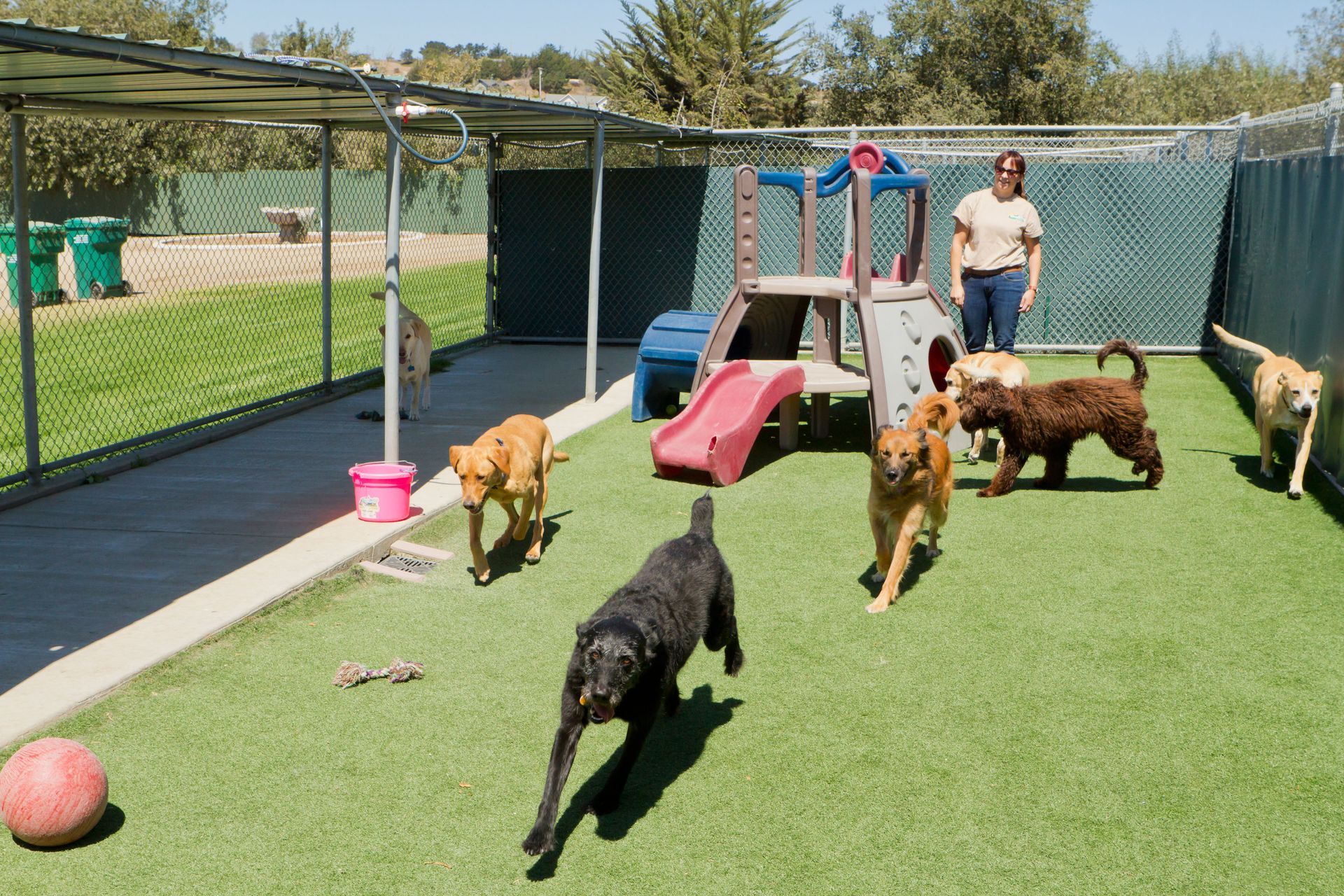6 Important Questions to Ask Your Dog Training Service
Deciding to hire a professional dog training service is a critical step in ensuring your dog receives the education and guidance necessary for good behavior and socialization. As a pet owner, it is crucial to ask the right questions to choose the best service for your dog's needs. This guide outlines the essential inquiries you should make before committing to a dog training service.
1. What Training Methods Do You Use?
Positive Reinforcement Techniques
Positive reinforcement has become a popular and effective training technique widely endorsed by animal behavior experts. This method focuses on rewarding desirable behaviors with treats, praise, or toys, which positively reinforce the behavior you want to see repeated. The beauty of positive reinforcement is that it fosters a strong, trusting relationship between the dog and the owner, which is pivotal for a harmonious household. Understanding how trainers implement positive reinforcement techniques assures you of their commitment to humane and compassionate training standards. A well-trained dog resulting from positive reinforcement contributes to easier socialization and adaptability to various environments.
Handling Negative Behaviors
Addressing negative behaviors is an essential component of a dog training service that requires patience, consistency, and informed techniques. Discussing with your trainer how negative behaviors are managed ensures that harsh or detrimental methods are not part of the training. Effective strategies may include redirection, time-outs, or reinforcing alternative desired behaviors. It's essential to ensure that any behavior correction is grounded in understanding and not in frustration or coercion. Having an open dialogue with your trainer about handling such behaviors underscores your commitment to maintaining a positive learning environment for your dog.
Customization of Training Approaches
Every dog is unique in personality, learning style, and behavioral needs, necessitating customized training approaches. Discussing how training can be tailored to accommodate your dog's temperament and any specific challenges is critical for success. Trainers should assess your dog's behavior and adapt techniques to maximize receptivity and learning. Customizing training also helps to target specific problems, like separation anxiety or excessive barking, efficiently. A service that offers personalized training reflects a deeper commitment to understanding your dog's individual requirements.
2. What Qualifications and Experience Do Your Trainers Have?
Certification and Credentials
The qualifications and credentials of a dog training service are key indicators of their expertise and professionalism. Certifications from recognized organizations validate a trainer's skills and knowledge. These certifications ensure that trainers are well-versed in contemporary training theories and humane methods. It is also advisable to confirm that the trainer has passed any required assessments to establish their capability to handle a variety of dog behavioral issues. Credentials and certifications give reassurance that your dog is in competent hands.
Years of Experience
A trainer's experience plays a significant role in their ability to handle diverse dog behaviors and provide effective solutions. A trainer with many years of experience is likely to have encountered a wide range of training challenges and developed an adaptable set of skills. Discussing a trainer’s experience with different breeds and their approaches provides insight into their versatility and depth of knowledge. Experienced trainers often have honed instincts for reading a dog's body language and signs of stress or confusion, facilitating more effective training sessions. Ultimately, experience often translates to the ability to customize solutions to meet specific canine behavior needs.
Specialization in Dog Breeds or Behaviors
Some trainers specialize in working with specific dog breeds or handling unique behaviors such as aggression or separation anxiety. A specialization can be particularly advantageous if your dog has breed-specific tendencies or idiosyncratic behavioral issues that require focused attention. Specialized trainers often possess deeper insights and accumulated techniques that are tailored to these particular characteristics. Inquiring about the trainer’s specialization helps ensure that your dog's unique needs will be met with expertise and understanding. Specialization assures a heightened level of proficiency and potentially faster progress in behavior modification.
3. How Are Training Sessions Structured?
Session Frequency and Duration
Understanding the structure, frequency, and duration of training sessions is crucial for setting realistic expectations and scheduling. Discussing options for weekly sessions or more intensive training methods can help you determine the best fit for your lifestyle and your dog's speed of learning. It is also important to consider the length of each session; too long may cause fading attention spans, while too short may not allow for thorough instruction. Learning about the session frequency and its adaptability assures you that both your needs and those of your dog are properly addressed. Skillful trainers recognize and adjust their session structure to optimize every learning opportunity.
Location and Environment
The location and environment where training sessions occur can significantly influence their effectiveness. Some training services may operate in-home, where the dog is most comfortable, while others utilize dedicated training facilities that mimic real-world distractions. Discussing the environment where training occurs ensures it meets your preferences and provides an ideal learning atmosphere for your dog. Weather-controlled facilities with good indoor space may be preferred for consistency, regardless of weather conditions. Stable and stimulating environments assist your dog in focusing and practicing skills outside the comfort zone.
4. What Is Your Approach to Handling Behavioral Issues?
Identifying Root Causes of Behavior
Understanding the root causes of behavioral issues is essential for effectively addressing them. A knowledgeable trainer will have the skills to assess environmental, behavioral, and health factors impacting your dog's behavior. An informed evaluation of triggers helps develop targeted strategies for behavior modification. Delving into causes enables trainers to recommend the most humane and effective methods tailored to your dog's unique situation. Identifying a behavior's root cause transforms superficial treatment into profound and lasting change.
Behavioral Modification Strategies
Behavior modification requires methods informed by science that are adaptable to individual dogs. Discussing with your trainer about techniques such as desensitization, counter-conditioning, and reinforcement lays a foundation for comprehensive solutions. Trainers specializing in modification should present a structured plan for gradual improvement that considers your dog's wellness. By implementing tailored strategies, they transform challenging behaviors into more acceptable alternatives while fostering trust. Effective modification curbs undesired actions and encourages healthier rituals of interaction with your beloved pet.
Managing Aggression and Fear
Managing aggression and fear requires patience, strengthened by expertise and systematic approaches. The trainer must possess tactics that prioritize safety for dogs and owners alike. Understanding how dog training service professionals approach these sensitive issues is crucial for providing the support required to transform negative emotions into manageable behaviors. Clear guidance imbued with empathy will alleviate both you and your dog's anxiety when navigating complex issues. Ensuring professional handling assuages, resulting in stronger partnerships forged from shared assurance.
5. What Are the Costs and Services Included?
Overview of Pricing Structure
Before committing to a training service, it's important to have a clear understanding of the pricing structure that fits within your budget while aligning with your expectations. Services may offer different packages or hourly rates based on the breadth and depth of the curriculum provided. It benefits you to evaluate pricing in terms of value for money, aligned with your training goals. Always clarify what services are covered and ensure transparency regarding any hidden or future costs. With Americans spending $136.8 billion on their pets in 2022, according to Forbes, finding a balance between cost and quality is vital for making a well-considered investment in your dog's future.
Refund and Cancellation Policies
Clear refund and cancellation policies guard against unforeseen complications, protecting both you and the service provider. Understanding these terms allows you to make informed decisions without encountering unexpected financial losses. A comprehensive policy provides clarity regarding non-refundable deposits, rescheduling flexibility, or the circumstances under which cancellations might be necessary.
Choosing the right dog training service requires thoughtful questions and careful consideration of methods, experience, structure, and costs. By taking the time to evaluate trainers thoroughly, you set the foundation for effective learning, improved behavior, and a stronger, more trusting bond with your dog. Do you need a dog trainer? Call Fido Fidelis Dog Training today to get started!





Share On: